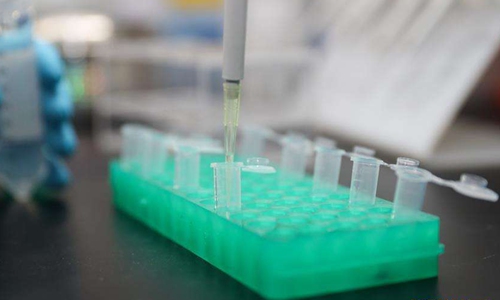Chinese research team finds pathogenic mutations in SARS-CoV-2, crucial for vax development
Source:Globaltimes.cn Published: 2020/4/21 3:11:12

Photo: Xinhua
A team lead by renowned epidemiologist Li Lanjuan on Sunday published a pre-print paper on medRvix that said it had observed mutations capable of changing its pathogenicity during severe acute respiratory syndrome-coronavirus (SARS-CoV-2), the source of the COVID-19 pandemic. The report asked for the mutations to be taken into consideration for drug and vaccine development.
"Our study provides direct evidence that mutations currently occurring in the SARS-CoV-2 genome have the functional potential to impact the viral pathogenicity. Therefore, drug and vaccine development, while urgent, need to take the impact of these accumulating mutations, especially the founding mutations, into account to avoid potential pitfalls," read the paper.
Eleven viral isolate samples were collected from patients at First Affiliated Hospital during a three-month period beginning in January.
The research team identified 33 mutations from the samples and found 19 of them were novel, according to the paper.
The study also found the patients had at least one mutation. The viral isolates reveal a significant variation in cytopathic effects and viral load, up to 270-fold differences, when infecting Vero-E6 cells.
The team also observed intrapersonal variations and six different mutations in the spike glycoprotein (S protein). The study will serve as evidence that the SARS-CoV-2 has mutations capable of changing pathogenicity.
In one viral isolate, a tri-nucleotide mutation was discovered, which researchers said was unexpectedly potent in viral load and CPE assay, and the patient remained positive for 45 days.
The team also discovered an active virus in three stool samples, which proves that SARS-CoV-2 is capable of replicating in feces, contrary to some recent reports.
The study included 11 patients, aged between 4 months and 71 years old, while 10 had traveled to Wuhan. Since the report was written, the patients have recovered and have been discharged from the hospital.
Posted in: SOCIETY